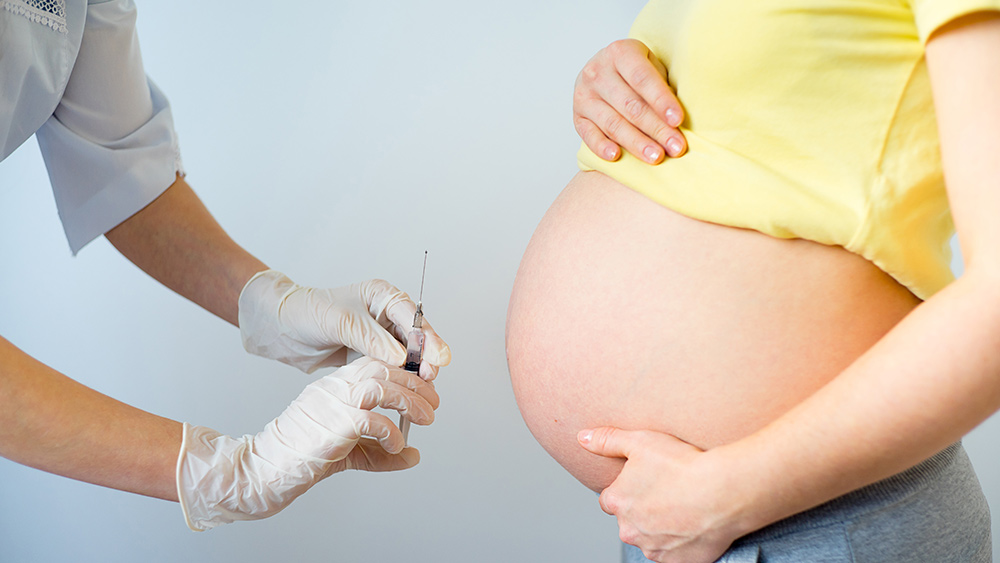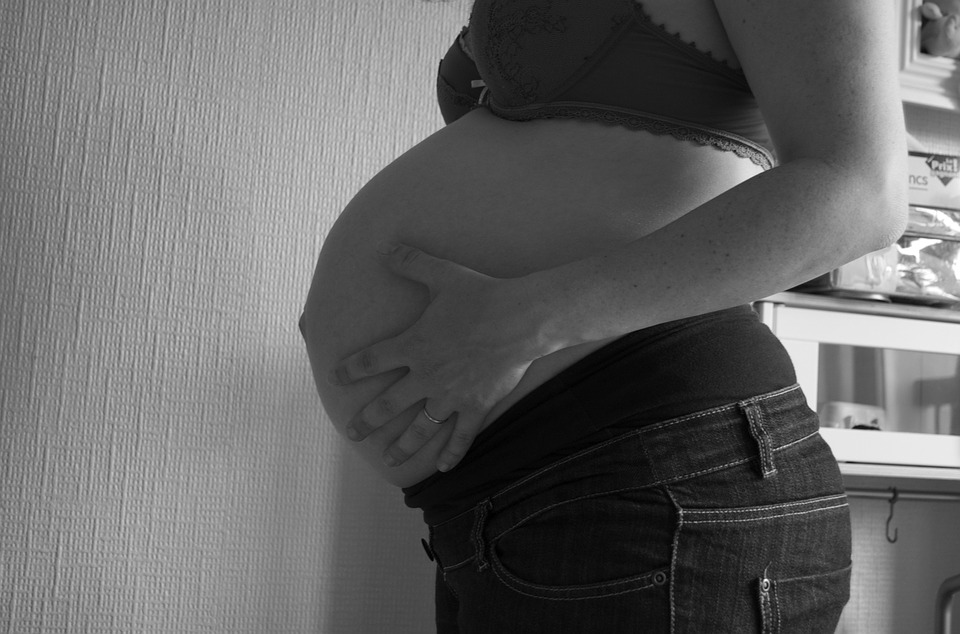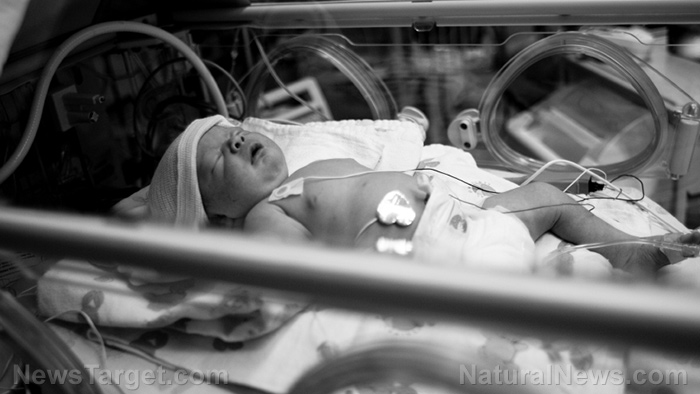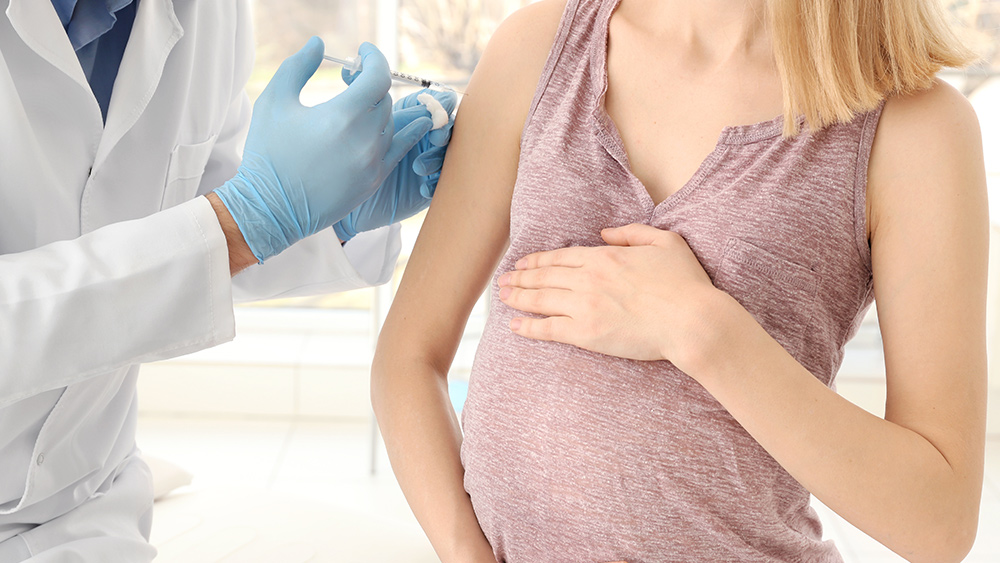Study: Women are more likely to suffer from COVID-19 vaccine injuries than men
10/25/2022 / By Roy Green

Women are more prone to suffer adverse events from Wuhan coronavirus (COVID-19) vaccines than men.
This startling finding came out of a study conducted by React19, a science-based non-profit that provides advice and support for individuals suffering from long-term COVID-19 vaccine-related injuries. (Related: Doctor verifies VAERS data showing COVID-19 vaccines increase dangers to women’s reproductive health.)
A total of 508 patients experiencing post-vaccination adverse events were evaluated in October 2021 by React19 as per its website and found that 81 percent of those reporting injuries were females with ages ranging from 30-50 years.
Its finding jibed with the data from Vaccine Adverse Events Reporting System (VAERS), which showed that women comprised around 65 percent of the vaccine injury reports. Also, 41 percent of these adverse events happened to women aged 18-49.
Older women were not spared from these adverse events, with those in the 50-59 bracket and the 65-79 group constituting 35 percent of the injury reports since the rollout of COVID-19 vaccines.
Menstrual irregularities are the top complaint
The main complaint after getting the jabs turned out to be menstrual irregularities, according to a survey done by My Cycle Story covering over 6,000 women.
Compared to those who didn’t get injected, vaccinated women experienced an increase of nearly one day in their menstrual cycle – a finding corroborated by other studies worldwide.
A particular entry in the questionnaire posed a concern: decidual cast shedding (DCS).
That’s because fewer than 40 cases of DCS have been documented around the world for the past century. After the vaccines, at least 292 women experienced DCS in which an intact piece of tissue containing mucus and blood passes through the vagina. This can happen during the menstruation period and is sometimes taken as a sign of ectopic pregnancy.
What is more alarming, however, is the admission of the Food and Drug Administration that it knew 18 percent of pregnant women suffered miscarriages following the COVID-19 vaccination.
Another large study found that mature women who got the jabs are at heightened risk of suffering health conditions, including having a miscarriage, fertility issues, fetal cardiac arrest and menstrual abnormality.
A United Kingdom study in December 2021 revealed an increased risk of myocarditis (inflammation of the heart muscles), pericarditis (inflammation of lining outside the heart) and thrombosis (formation of blood clots in the veins or arteries) associated with the AstraZeneca vaccine.
Other studies also linked the COVID-19 vaccines to other health conditions like myalgia (muscle pains), arthralgia (joint pains), chest pains, leg swelling, persistent abdominal pain, severe headaches, blurred vision, formation of tiny blood spots, nausea and vomiting.
Despite earlier denials of the adverse effects of the COVID-19 vaccines, Centers for Disease Control and Prevention Director Dr. Rochelle Walensky recently admitted that there have been four adverse events linked to the shots: severe allergic reaction (anaphylactic shock), blood clotting, Guillain-Barre Syndrome (rapid-onset muscle weakness that can lead to paralysis) and heart inflammation.
The adverse effects have turned out to be so many and varied that health researchers are now pushing for “a worldwide moratorium on the use of COVID-19 vaccines in pregnancy until randomized prospective trials document safety in pregnancy and long-term follow-up in offspring.”
Claire Rogers of the Truth for Health Foundation said: “There’s enough of a safety signal in our research in looking at VAERS that we should pause the vaccines until they are studied more in-depth.”
No wonder, Pfizer has discontinued its COVID-19 vaccine trial in pregnant women in several countries launched in February 2021. The reason given for the stoppage was the slow recruitment of expectant mothers, which is a flimsy excuse. Most likely, the data they obtained, which it cited as “incomplete numbers,” did not conform to what the pharmaceutical giant is hoping for.
Even the World Health Organization (WHO) can no longer ignore the data at hand.
The WHO wrote on its website in January 2021: “The use of this vaccine (Moderna) in pregnant women is currently not recommended unless they are at risk of high exposure (e.g. health workers). It’s clear, women, especially those who are pregnant, are at risk of injuries brought about by the COVID-19 vaccines.
Visit VaccineDamage.news for more stories related to vaccine injuries.
Watch the video below about the WHO’s new guideline on the Moderna COVID-19 vaccine, telling women not to take the jab unless they are at risk of high exposure to coronavirus.
This video is from the Mid East Salt & Light Brigade channel on Brighteon.com.
More related stories:
Ben Armstrong: Pfizer knows the COVID vaccine is dangerous for pregnant women.
Sources include:
Submit a correction >>
Tagged Under:
Big Pharma, biological weapon, CDC, FDA, miscarriage, Moderna, myocarditis, pandemic, pericarditis, Pfizer, pharmaceutical fraud, spike protein, thrombosis, vaccine damage, vaccine injury, vaccines, VAERS, WHO, women's health
This article may contain statements that reflect the opinion of the author
RECENT NEWS & ARTICLES
COPYRIGHT © 2017 WOMENS HEALTH NEWS




















